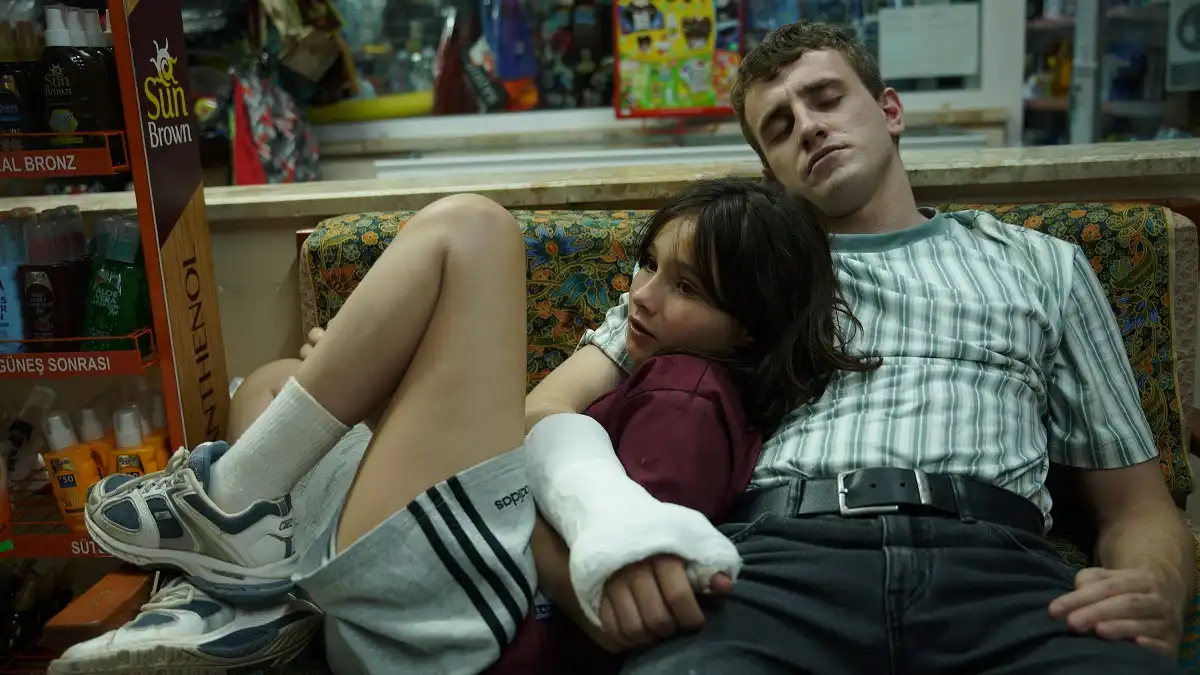Aftersun: The Luminous Heartache Of Charlotte Wells' Film
Aftersun speaks in the sort of voice that impacts the viewer like a good investment might: We don’t realise we’re giving a little of ourselves to the film every minute, writes <strong><em>Rahul Desai.</em></strong>

Still from Aftersun. MUBI
Sophie assumes she’s getting to know her father better, or perhaps even cheering him up a bit. But what she’s really doing is knowing him enough to be nostalgic – and not bitter – about him. I suppose we all deal with this paradox of memory: Do we confront the stark fullness, warts and all, of how we choose to grieve for our parents? Or do we preserve their carefully calibrated personalities? Aftersun shows that this conflict is not really a conflict; it’s only a relationship between truth and reality, between love and immortality. One cannot exist without the other. Perhaps it’s why I write about my father so much. I’m trying to complete my memories and perception of him – and sculpt all those hidden fragments into my idol – before it’s too late. The only thing more painful than missing a parent is not knowing what you miss. And I want to know. Every piece brings me closer to that inevitable peace. It brings me closer to a strobe-lit dance with him in which I’m confused about whether to hold or push him. But I’m also under no illusion about what lies ahead. Aftersun is brave enough to suggest that it’s rarely as cinematic as healing. Closure is an invented word; it’s an act of permission to bleed beyond the past. It lends personal syllables the permanence of language. There is, ultimately, no medicine for being shaped by the shadow of our parents.Overcome by this emotion of writing about Aftersun I had a nice dinner sent over to my father’s apartment 433 kilometers away. I expected to bolster my memory bank with his pleasantly surprised phone call. I framed a mental picture of how he’d devour the meal, barely chewing as usual, and then complain about an upset stomach. The phone call came, but it was from the delivery agent. Nobody was answering the doorbell. The romanticism of my guilt was punctured. I told him to leave the food with the security guard downstairs. He seemed a little uneasy that I didn’t sound concerned about my 69-year-old father not opening the door. This is a post-pandemic planet, and my father isn’t the most agile man. But I wasn’t worried. I’m not worried. I know he’s breathing loudly, as he normally does in the thick of the evening. I can hear him sleep, oblivious to the noise outside his door. I open the curtains a little, letting in a sliver of the winter aftersun. He stirs. His pillow is a bit moist. I’m sure he’s drooling again. I roll my eyes, before leaving for the airport.
Aftersun is streaming on MUBI.Share